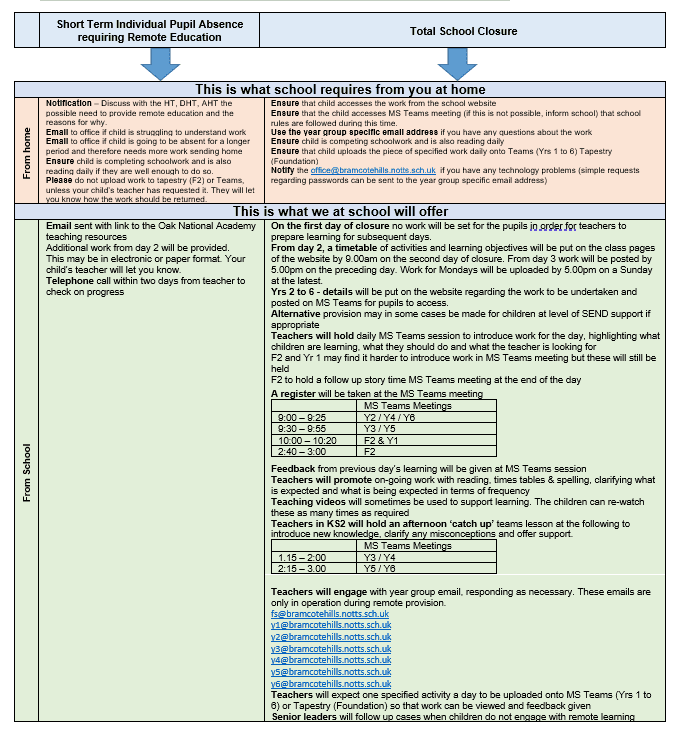Scenarios where remote education could be considered
Circumstances where it might not be possible for pupils to receive in person education fit into 2 broad categories:
- school closures or restrictions on attendance, where school access for pupils is restricted
- individual cases where a pupil is unable to attend school but is able to learn
- School closures or restrictions on attendance
Every effort will be made to ensure pupils can be taught in person by attending their school or if appropriate and possible, attending a safe alternative site.
After exploring all options to ensure the school remains open to all pupils, it may still be some exceptional occasions when school leaders or the local authority decide it is not possible to open safely, or where opening would contradict guidance from local or central government. If restricting attendance for pupils is the only viable option, we would consider providing remote education to help pupils stay on track with the education they would normally receive.
At BHPS we have a plan for remote education which outlines procedures for teachers, parents, carers and pupils. This plan would be implemented during emergency closures where the decision to close can often be made at short notice. In providing such provision, the school would consult DfE emergency planning guidance in the event of school closures or restrictions on attendance.
- Individual cases where a pupil is unable to attend school but is able to learn
There would only be limited circumstances where a pupil is unable to attend school but is able and well enough to continue their education remotely. These circumstances should only involve a short-term absence and might include pupils:
- recovering from short- term infectious illnesses
- preparing for or recovering from some operations
- recovering from injuries where attendance might inhibit recovery
In some exceptional cases, these circumstances might also include pupils whose attendance has been affected by a special educational need or disability (SEND) or a mental health issue. In these circumstances, after the pupil’s absence from school has been established, school will consider providing pupils with remote education on a case-by-case basis. This would be part of a plan to reintegrate back to school, and only when it is judged that providing remote education would not adversely affect the pupil’s return to school.

